Who was Pythagoras
“No one is free who has not obtained the empire of himself. No man is free who cannot command himself.”
― Pythagoras

Pythagoras, a renowned ancient Greek philosopher and mathematician, developed a unique and influential philosophical system that combined elements of mysticism, mathematics, and spirituality. His teachings, known as Pythagoreanism, had a profound impact on Western thought and continue to resonate with contemporary ideas in psychology and personal growth. This blog post will explore the key elements of Pythagorean philosophy and examine how they relate to Jungian psychology and the individuation process.
The Pythagorean Concept of Harmony and Proportion:
At the heart of Pythagorean philosophy is the idea that the universe is governed by harmony and proportion. Pythagoras believed that everything in the cosmos could be understood in terms of mathematical relationships and that these relationships were the key to unlocking the secrets of the universe.
For Pythagoras, the most fundamental of these mathematical relationships was the concept of harmony, which he saw as the perfect balance and integration of opposites. He believed that when opposites are combined in the right proportions, they create a higher unity that is more than the sum of its parts.
This idea of harmony and proportion has important implications for how we understand the nature of the self and the path of personal growth. In Pythagorean thought, the individual is seen as a microcosm of the universe, containing within itself the same principles of harmony and proportion that govern the cosmos as a whole.
The Pythagorean Path of Self-Realization:
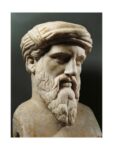
Pythagoras taught that the ultimate goal of human life was the realization of one’s true nature and the attainment of wisdom. He believed that this could be achieved through a process of self-purification and self-discovery, in which the individual gradually aligns themselves with the principles of harmony and proportion that underlie the universe.
Central to this process was the practice of self-examination and self-knowledge. Pythagoras encouraged his students to engage in regular introspection and to question their own beliefs and assumptions. He believed that by gaining a deeper understanding of oneself, one could begin to uncover the universal principles that govern the cosmos and to live in accordance with them.
Pythagoras also emphasized the importance of living a virtuous life and cultivating qualities such as temperance, courage, justice, and wisdom. He believed that these virtues were essential for achieving inner harmony and for aligning oneself with the greater harmonies of the universe.
The Pythagorean Community and Way of Life:
Pythagoras founded a philosophical community in the city of Croton, Italy, where he and his followers lived a highly disciplined and regulated way of life. The Pythagorean community was based on the principles of communal living, vegetarianism, and the study of mathematics, music, and philosophy.
The Pythagoreans believed that by living in accordance with these principles, they could purify themselves and attain a higher state of consciousness. They saw the community as a microcosm of the harmonious universe, and believed that by creating order and harmony within the community, they could create order and harmony within themselves.
The Pythagorean way of life also involved a number of rituals and practices aimed at promoting self-awareness and spiritual growth. These included the use of music and mathematics as tools for contemplation and self-discovery, as well as the practice of silence and secrecy as a means of preserving the integrity of the teachings.
Implications for Jungian Psychology and the Individuation Process:
The Pythagorean philosophy, with its emphasis on harmony, proportion, and self-realization, has significant parallels with the psychological theories of Carl Jung and his concept of the individuation process.
Jung’s idea of the Self, which he saw as the archetypal image of wholeness and the ultimate goal of the individuation process, bears a striking resemblance to the Pythagorean concept of the harmonious universe. Both Jung and Pythagoras saw the path to wholeness and self-realization as one that involves the integration of opposites and the creation of a higher unity.
Moreover, Jung’s emphasis on the importance of self-knowledge and the exploration of the unconscious mind is strongly resonant with the Pythagorean practice of self-examination and introspection. Both Jung and Pythagoras recognized that the path to self-realization involves a deep exploration of one’s own psyche and a confrontation with the shadow or darker aspects of the self.
The Pythagorean way of life, with its emphasis on communal living, discipline, and the cultivation of virtue, also has important implications for the practice of psychotherapy and personal growth. It suggests that the path to wholeness and self-realization is not a solitary one, but one that is supported by a community of like-minded individuals who are committed to living in accordance with universal principles.
In the context of psychotherapy, the Pythagorean approach would emphasize the importance of creating a safe and supportive environment in which individuals can explore their own psyche and work towards self-realization. It would also highlight the importance of cultivating virtues such as self-awareness, integrity, and compassion as essential components of the therapeutic process.
The Pythagorean Concept of Reincarnation:
One of the most intriguing aspects of Pythagorean philosophy is its concept of reincarnation. Pythagoras believed that the soul is immortal and that it undergoes a series of incarnations in different bodies until it reaches a state of perfection and is able to return to its divine source.
According to Pythagorean thought, the nature of one’s reincarnation is determined by the quality of one’s life and actions in previous incarnations. Those who live virtuous and harmonious lives are believed to be reborn into higher states of existence, while those who engage in vice and disharmony are reborn into lower states.
This concept of reincarnation has important implications for how we understand the nature of the self and the purpose of human existence. It suggests that our current life is just one in a series of many, and that our ultimate goal is to evolve and grow through each successive incarnation until we achieve a state of spiritual perfection.
The Pythagorean Understanding of the Soul:
Closely related to the concept of reincarnation is the Pythagorean understanding of the soul. In Pythagorean thought, the soul is seen as the immortal and divine aspect of the self, which is distinct from the physical body and the ego.
The soul is believed to be the source of our consciousness and the seat of our higher faculties, such as reason, intuition, and moral sense. It is also seen as the part of the self that is most closely connected to the divine and the universal principles of harmony and proportion.
For Pythagoreans, the ultimate goal of human existence is the purification and perfection of the soul. This involves a process of self-discovery and self-transformation, in which the individual gradually aligns themselves with the higher harmonies of the universe and realizes their true nature as a divine being.
The Pythagorean Practice of Silence and Secrecy:
One of the most distinctive features of the Pythagorean way of life was the practice of silence and secrecy. Pythagoras believed that the deepest truths of the universe could not be communicated through words alone, but required a direct experience of reality that could only be achieved through contemplation and inner realization.
To facilitate this process, Pythagoreans were required to undergo a period of silence and seclusion, during which they would engage in intense self-examination and contemplation. They were also sworn to secrecy about the teachings of the community, which were seen as sacred and not to be shared with outsiders.
This practice of silence and secrecy has important implications for how we understand the nature of spiritual knowledge and the process of self-realization. It suggests that the deepest truths of the self and the universe cannot be grasped through intellectual understanding alone, but require a direct experience of reality that can only be achieved through inner exploration and transformation.
The Pythagorean Use of Music and Mathematics:
Another distinctive feature of Pythagorean philosophy was its use of music and mathematics as tools for contemplation and self-discovery. Pythagoras believed that music and mathematics were expressions of the universal principles of harmony and proportion that underlie the cosmos, and that by studying and practicing them, one could attune oneself to these higher realities.
For Pythagoreans, music was seen as a means of harmonizing the soul and bringing it into alignment with the greater harmonies of the universe. They believed that certain musical intervals and scales had specific correspondences with the different levels of reality, and that by listening to and playing music, one could access these higher states of consciousness.
Similarly, mathematics was seen as a means of understanding the underlying structures and patterns of the cosmos. Pythagoreans believed that numbers had a sacred and mystical significance, and that by contemplating their relationships and proportions, one could gain insight into the nature of reality itself.
Implications for Contemporary Spirituality and Psychology:
The mystical philosophy of Pythagoras, with its emphasis on harmony, self-realization, and the use of music and mathematics as tools for contemplation, has much to offer contemporary seekers and practitioners of spirituality and psychology.
At a time when many people are feeling disconnected from traditional religious frameworks and are searching for new ways of understanding themselves and the world, the Pythagorean tradition provides a powerful framework for self-discovery and transformation.
Its emphasis on the cultivation of virtues, the practice of self-examination, and the use of music and mathematics as tools for contemplation resonates strongly with many contemporary approaches to personal growth and spiritual development, such as mindfulness-based practices, contemplative prayer, and the use of sound and vibration in healing.
Moreover, the Pythagorean understanding of the soul as the immortal and divine aspect of the self, and its concept of reincarnation as a process of spiritual evolution, can provide a much-needed perspective on the nature of human existence and the purpose of life.
By engaging with the wisdom and insight of the Pythagorean tradition, modern seekers can deepen their understanding of themselves and the world around them, and can find new paths of meaning, purpose, and spiritual growth.
The mystical philosophy of Pythagoras represents a profound and transformative vision of the nature of reality, the human soul, and the path of spiritual development. Its emphasis on harmony, proportion, and self-realization, as well as its use of music and mathematics as tools for contemplation, has inspired countless seekers and thinkers throughout history, and continues to resonate with contemporary approaches to spirituality and psychology.
By engaging with the principles and practices of Pythagorean philosophy, we can gain a deeper understanding of ourselves and the world around us, and can find new paths of meaning, purpose, and spiritual growth. Whether through the cultivation of virtues, the practice of self-examination, or the use of music and mathematics as tools for contemplation, the Pythagorean path offers a powerful framework for self-discovery and transformation.
Read More Depth Psychology Articles:
Taproot Therapy Collective Podcast
Mystics and Gurus
Bibliography:
- Plato. (Various editions). The Republic.
- Plato. (Various editions). Timaeus.
- Plato. (Various editions). Phaedrus.
- Plotinus. (Various editions). The Enneads.
Further Reading:
- Armstrong, A.H. (1967). The Cambridge History of Later Greek and Early Medieval Philosophy. Cambridge University Press.
- Gerson, L.P. (1994). Plotinus. Routledge.
- Hadot, P. (1993). Plotinus or The Simplicity of Vision. University of Chicago Press.
- O’Meara, D.J. (1993). Plotinus: An Introduction to the Enneads. Clarendon Press.
- Rist, J.M. (1967). Plotinus: The Road to Reality. Cambridge University Press.
- Wallis, R.T. (1972). Neoplatonism. Gerald Duckworth & Co Ltd.
- Corrigan, K. (2005). Reading Plotinus: A Practical Introduction to Neoplatonism. Purdue University Press.
- Rappe, S. (2000). Reading Neoplatonism: Non-discursive Thinking in the Texts of Plotinus, Proclus, and Damascius. Cambridge University Press.
- Remes, P. (2008). Neoplatonism. University of California Press.
- Jung, C.G. (1969). The Archetypes and the Collective Unconscious. Princeton University Press.
- Dodds, E.R. (1951). The Greeks and the Irrational. University of California Press.
- Copleston, F. (1946). A History of Philosophy, Volume 1: Greece and Rome. Continuum.
- Emilsson, E.K. (2017). Plotinus. Routledge.
- Merlan, P. (1969). Monopsychism, Mysticism, Metaconsciousness: Problems of the Soul in the Neoaristotelian and Neoplatonic Tradition. Martinus Nijhoff.
- Dillon, J. (1996). The Middle Platonists: 80 B.C. to A.D. 220. Cornell University Press.

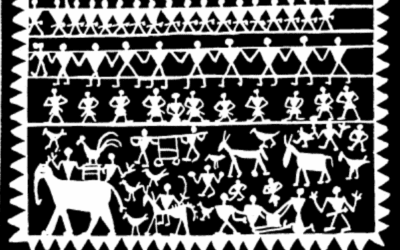

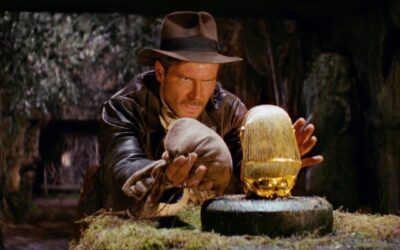



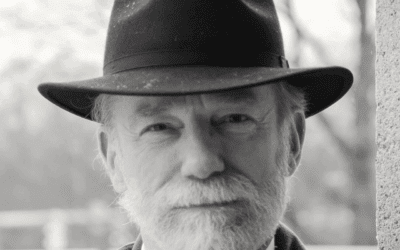

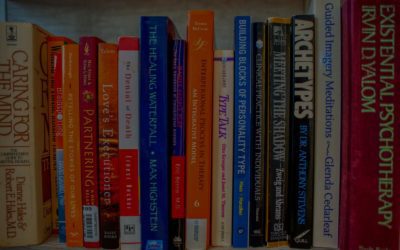







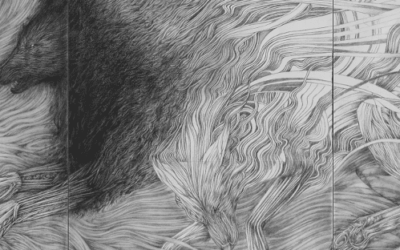

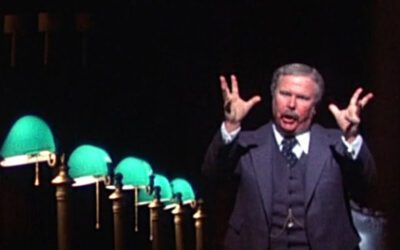






0 Comments